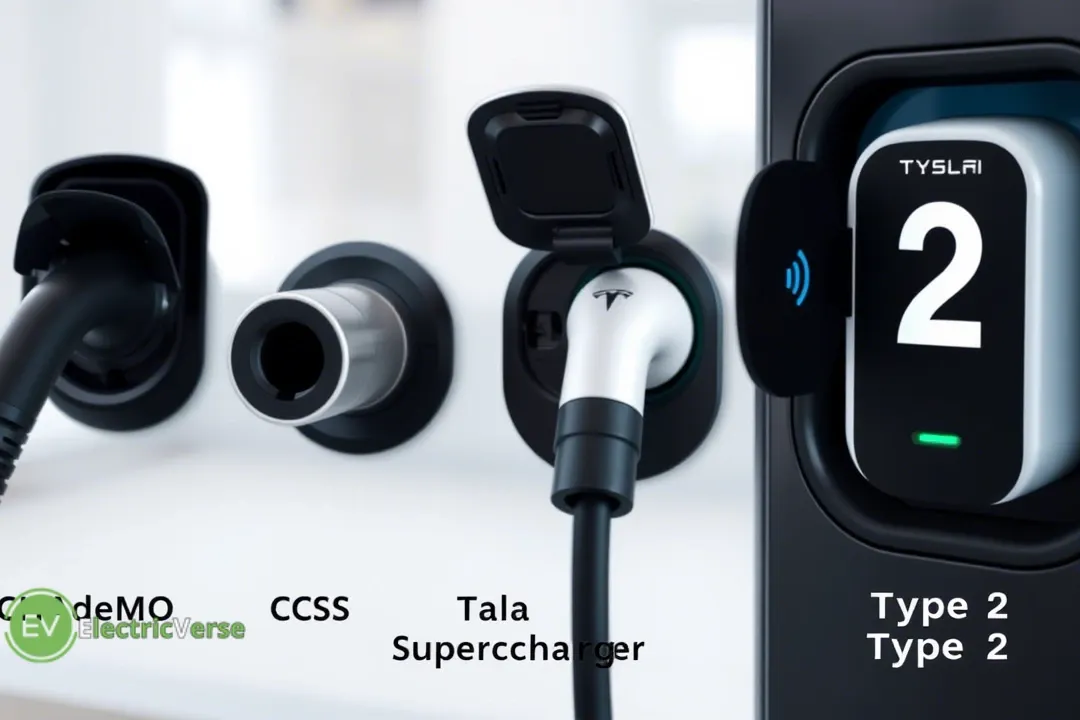Electric vehicles (EVs) are becoming the future of transportation, with more drivers than ever making the switch to sustainable mobility. However, one hurdle that often confuses new EV owners is understanding the different types of EV charging connectors. Navigating this landscape can seem complicated, but with the right knowledge, you’ll feel confident plugging in your EV at home or on the go. In this ultimate guide, we’ll break down the most commonly used EV charging connectors, their compatibility, and how you can make the most of these options.
Why Understanding EV Charging Connectors Matters
As you embark on your EV journey, one of the most critical considerations is how and where you’ll charge your vehicle. The type of charging connector your EV uses depends on the make, model, and charging speed you prefer. Choosing the right connector is essential for ensuring a seamless charging experience, whether at home or at public charging stations.
Moreover, understanding the differences between charging connectors will help you plan routes, locate compatible stations in advance, and avoid unnecessary delays. With global EV adoption accelerating, knowing your connectors is a key step toward hassle-free driving.
Types of EV Charging Connectors
1. Type 1 Connector (SAE J1772)
The Type 1 connector, also known as the J1772 plug, is a single-phase AC connector predominantly used in North America and Japan. It supports Level 1 (120V) and Level 2 (240V) charging. While it’s common in older EV models, many modern EVs are transitioning to more advanced options.
Key Features:
- Ideal for slow to moderate charging speeds.
- Compatible with most home and workplace chargers.
- Commonly used for vehicles like the Nissan Leaf (older models).
2. Type 2 Connector
The Type 2 connector is the industry standard across Europe and is quickly gaining global traction. This versatile plug supports both single-phase and three-phase AC charging, making it suitable for faster Level 2 charging. Many public charging stations and modern EVs, such as Tesla models in Europe, use Type 2 connectors.
Key Features:
- Supports faster charging speeds compared to Type 1.
- Found in both residential and public charging setups.
- Comes with a locking mechanism for secure connections.
3. CCS (Combined Charging System)
The CCS connector is an enhanced version of the Type 2 plug, designed for both AC and DC fast charging. It’s widely adopted in Europe and North America, offering ultra-fast charging capabilities for long-distance travel. CCS connectors are the go-to option for many popular EV models, including the BMW i3, Hyundai Kona Electric, and Volkswagen ID.4.
Key Features:
- Enables rapid charging for long trips.
- Combines AC and DC pathways into one connector.
- Backward-compatible with Type 2 ports (AC charging only).
4. CHAdeMO
CHAdeMO is a DC fast-charging connector developed in Japan and used by brands like Nissan and Mitsubishi. While it’s not as widely adopted as CCS in North America and Europe, it remains a strong contender in Asia. CHAdeMO supports bidirectional charging, meaning it can both charge your EV and discharge electricity back to the grid.
Key Features:
- DC fast charging with speeds up to 100 kW.
- Compatible with older Nissan Leaf models.
- Excellent for vehicle-to-grid (V2G) applications.
5. Tesla Connector
Tesla has its proprietary charging standard in North America, featuring a streamlined design that supports both AC and DC fast charging via the Tesla Supercharger network. Tesla vehicles sold in Europe, however, use the Type 2 connector to comply with regional standards.
Key Features:
- Exclusively designed for Tesla vehicles in North America.
- Access to Tesla’s extensive and reliable Supercharger network.
- Adaptable with third-party chargers via an adapter.
How to Choose the Right Charging Connector
When selecting the right connector for your EV, consider the following factors:
- Vehicle Compatibility: Check your EV’s manual or manufacturer website to confirm the connector type.
- Charging Speed: If you prioritize fast charging, opt for CCS or CHAdeMO.
- Region: Standards vary by region, so ensure your EV’s connector matches the common infrastructure in your area.
- Future-Proofing: As the EV market evolves, CCS is emerging as the global standard for fast charging, making it a smart long-term choice.
Where to Find EV Charging Stations with Compatible Connectors
Finding charging stations with the right connectors is easier than ever, thanks to apps and services like PlugShare and ChargePoint. These platforms allow you to filter stations by connector type, charging speed, and location, ensuring you’re always prepared. For Tesla drivers, the Tesla app provides seamless access to its Supercharger network, which is continuously expanding globally.
For those in search of reliable home charging solutions, consider checking out EVBox, a trusted provider of cutting-edge EV charging stations. Their wide range of products includes options for every EV and connector type, making them a one-stop shop for all your charging needs.
The Future of EV Charging Connectors
As the EV industry grows, there’s a strong push toward unifying charging standards. CCS is poised to become the global standard for fast charging, while Type 2 remains the preferred choice for AC charging in many regions. Innovations like wireless charging and ultra-fast 350 kW stations are also on the horizon, promising even greater convenience and efficiency.
Conclusion
Understanding the different types of EV charging connectors is crucial for any EV owner. By familiarizing yourself with the available options—Type 1, Type 2, CCS, CHAdeMO, and Tesla connectors—you’ll be better equipped to plan your charging strategy and enjoy a smoother driving experience. With reliable resources like EVBox and public charging networks expanding daily, staying connected has never been easier.
Whether you’re a new EV owner or considering making the switch, use this guide to power up your journey and confidently hit the road to a greener future.
Ready to upgrade your EV charging experience? Explore EVBox for reliable, scalable charging solutions.

